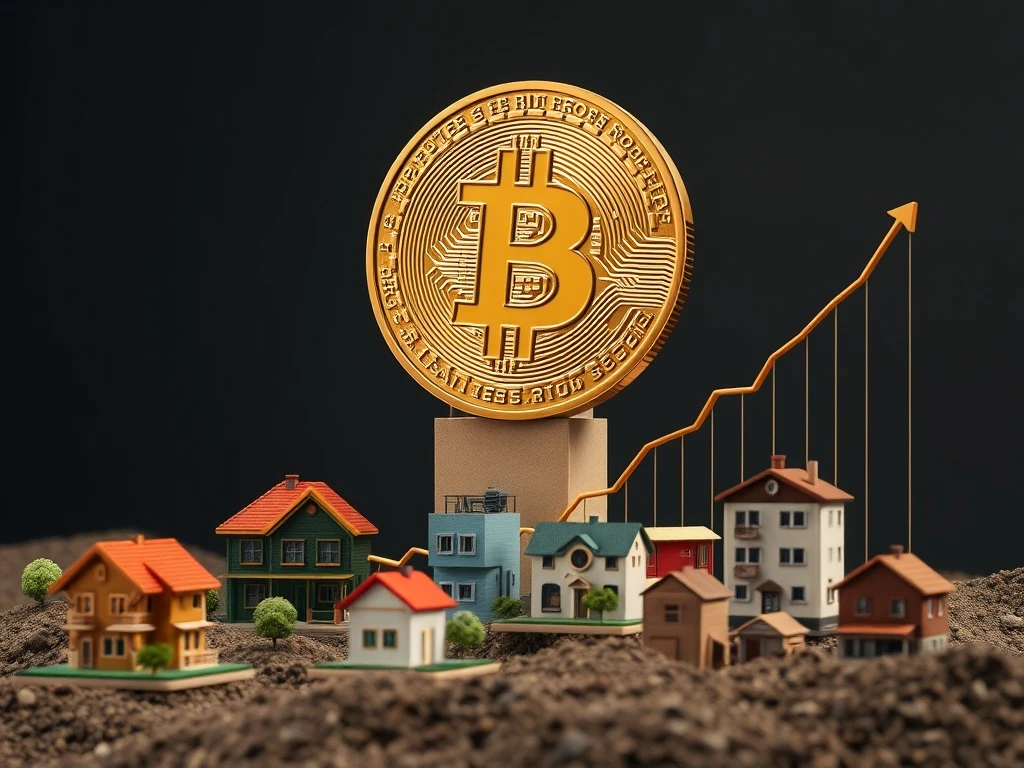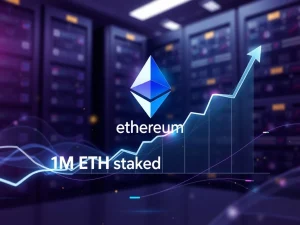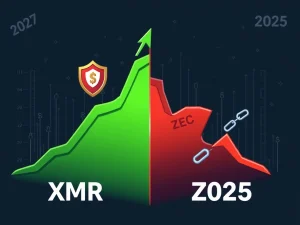Revolutionary Shift: Why Bitcoin Could Outperform Traditional Real Estate

The bold claim, ‘F*ck Real Estate – Buy Bitcoin,’ might seem audacious to some, but it encapsulates a growing sentiment in the investment world. As we look towards July 2025 and beyond, the traditional paradigms of wealth accumulation are being challenged. For generations, real estate has been hailed as the ultimate tangible asset, a bedrock for long-term financial security. However, the rise of Bitcoin, the pioneering cryptocurrency, has introduced a powerful new contender, prompting investors to re-evaluate their portfolios. This article delves into why many are now considering Bitcoin not just as a speculative gamble, but as a serious, potentially superior, alternative to conventional property investments.
Bitcoin vs. Real Estate: A New Investment Paradigm
When comparing Bitcoin and real estate, it’s essential to understand their fundamental differences and how they cater to varying investment goals. Real estate offers tangible value, rental income, and a sense of security, but it comes with significant illiquidity, high transaction costs, and geographical limitations. Bitcoin, on the other hand, offers unparalleled liquidity, global accessibility, and divisibility. You can buy a fraction of a Bitcoin anywhere in the world, at any time, with minimal fees, a stark contrast to closing on a property.
Consider the following comparison:
| Feature | Bitcoin | Real Estate |
|---|---|---|
| Liquidity | High (24/7 global markets) | Low (lengthy transaction process) |
| Divisibility | Highly divisible (to 8 decimal places) | Generally indivisible (can’t buy half a bathroom) |
| Transaction Costs | Low (network fees) | High (commissions, legal fees, taxes) |
| Global Accessibility | Universal (internet connection needed) | Local (country-specific regulations, travel) |
| Maintenance/Upkeep | None | Significant (repairs, taxes, insurance) |
| Inflation Hedge | Potentially strong (fixed supply) | Moderate (value tied to local economy) |
While real estate has historically been a reliable inflation hedge, Bitcoin’s fixed supply of 21 million coins makes it inherently deflationary, a characteristic that appeals to those concerned about currency debasement. The ease of transferring Bitcoin across borders also makes it a powerful tool for wealth preservation and transfer, especially in volatile geopolitical climates.
The Allure of Crypto Investment: Decentralization and Growth
What truly sets crypto investment apart is its foundational principle of decentralization. Unlike traditional assets controlled by central banks or governments, Bitcoin operates on a peer-to-peer network, free from intermediaries. This offers a level of financial autonomy unprecedented in modern history. The potential for exponential growth is another key draw. While real estate markets tend to move in cycles, Bitcoin has demonstrated parabolic growth phases, driven by increasing adoption, technological advancements, and its perceived value as ‘digital gold’.
Key attractions of crypto investment include:
- Decentralized Control: No single entity can manipulate Bitcoin’s supply or transactions.
- Global Accessibility: Anyone with an internet connection can participate, democratizing investment.
- Innovation and Utility: Beyond just a store of value, Bitcoin underpins a vast ecosystem of blockchain technology, DeFi, and more.
- Growing Institutional Adoption: Major financial institutions, corporations, and even sovereign nations are increasingly integrating Bitcoin into their strategies, lending it credibility and stability.
The narrative is shifting from ‘if’ Bitcoin will become a mainstream asset to ‘when’ and ‘how’ it will integrate into the global financial system. This growing acceptance is a powerful catalyst for future growth, potentially far exceeding the steady, but often slower, appreciation of real estate.
Navigating Digital Assets: Challenges and Opportunities
Investing in digital assets is not without its challenges. Volatility remains a significant factor, with Bitcoin’s price often experiencing dramatic swings. Regulatory uncertainty, though diminishing, still poses questions in some jurisdictions. Furthermore, the digital nature of these assets means security is paramount, with risks of hacks, phishing scams, and loss of private keys.
However, these challenges also present unique opportunities:
- Understanding Volatility: While intimidating, volatility can be leveraged by long-term investors through strategies like Dollar-Cost Averaging (DCA), reducing the impact of short-term price fluctuations.
- Evolving Regulation: As governments establish clearer frameworks, this can lead to greater investor confidence and mainstream adoption.
- Enhanced Security Measures: The industry is continuously developing more robust security solutions, from hardware wallets to multi-signature accounts, empowering investors to protect their holdings.
The opportunity lies in being an early adopter in what is still a nascent but rapidly maturing asset class. While real estate markets are largely saturated and mature, the digital asset space offers immense potential for innovation and value creation.
Building Wealth with Bitcoin: Strategies for the Modern Investor
For those looking to integrate Bitcoin into their wealth building strategy, a thoughtful approach is crucial. It’s not about abandoning all other assets, but rather understanding how Bitcoin can complement a diversified portfolio. One popular strategy is ‘HODLing’ (holding on for dear life), which involves buying Bitcoin and holding it for the long term, riding out short-term volatility in anticipation of significant future gains.
Consider these actionable insights:
- Start Small and Learn: Begin with an amount you’re comfortable losing and gradually increase your exposure as you gain understanding.
- Dollar-Cost Averaging (DCA): Invest a fixed amount regularly, regardless of price. This smooths out your average purchase price over time.
- Secure Your Holdings: Use reputable exchanges for purchases and consider cold storage (hardware wallets) for long-term holdings.
- Diversify Your Portfolio: While Bitcoin is a powerful asset, a balanced portfolio often includes a mix of traditional assets, other cryptocurrencies, and even some real estate.
- Stay Informed: The crypto space evolves rapidly. Continuously educate yourself on market trends, technological advancements, and regulatory changes.
The goal isn’t necessarily to replace real estate entirely, but to recognize Bitcoin’s potential as a powerful engine for wealth accumulation, especially for those seeking high-growth opportunities and increased financial freedom.
Beyond Traditional Real Estate: The Future of Investment
The shift from valuing purely physical assets like real estate to embracing digital ones like Bitcoin marks a significant evolution in how we perceive and build wealth. The future of investment is likely to be a hybrid one, where traditional assets coexist with a burgeoning digital economy. However, Bitcoin’s unique properties – its scarcity, global reach, and permissionless nature – position it as a formidable asset for the 21st century. It represents not just a new form of money, but a new paradigm for ownership and value transfer, one that is more aligned with the interconnected, digital world we inhabit.
In conclusion, while real estate will always hold a place in many portfolios, the argument for ‘Buy Bitcoin’ is gaining undeniable momentum. Its potential for revolutionary growth, combined with its inherent advantages in liquidity, accessibility, and resistance to inflation, makes it a compelling consideration for any forward-thinking investor. The future of wealth is increasingly digital, and Bitcoin is at the forefront of this transformative journey.
Frequently Asked Questions (FAQs)
Q1: Is Bitcoin truly a better investment than real estate?
A1: It depends on individual financial goals and risk tolerance. Bitcoin offers higher liquidity, lower transaction costs, and potentially higher growth rates, but also comes with greater volatility. Real estate provides stability, tangible assets, and rental income, but is illiquid and requires significant capital and maintenance.
Q2: How does Bitcoin act as an inflation hedge compared to real estate?
A2: Bitcoin has a fixed supply of 21 million coins, making it inherently deflationary and resistant to inflation caused by currency printing. Real estate can also be an inflation hedge as property values tend to rise with inflation, but its effectiveness can be localized and influenced by interest rates and economic cycles.
Q3: What are the main risks of investing in Bitcoin?
A3: The primary risks include high price volatility, regulatory uncertainty in some regions, security risks (e.g., hacks, scams, loss of private keys), and the potential for technological obsolescence (though unlikely for Bitcoin itself).
Q4: Can I really use Bitcoin to build significant wealth?
A4: Yes, many individuals have built significant wealth through Bitcoin investment, particularly those who adopted it early and held for the long term. Strategies like Dollar-Cost Averaging (DCA) and securing holdings in cold storage are crucial for maximizing potential and mitigating risks.
Q5: Should I sell all my real estate to buy Bitcoin?
A5: Financial advisors generally recommend diversification. While Bitcoin offers compelling opportunities, selling all traditional assets like real estate for Bitcoin is a high-risk strategy. A balanced portfolio that includes a mix of traditional and digital assets is often a more prudent approach for long-term wealth building.









